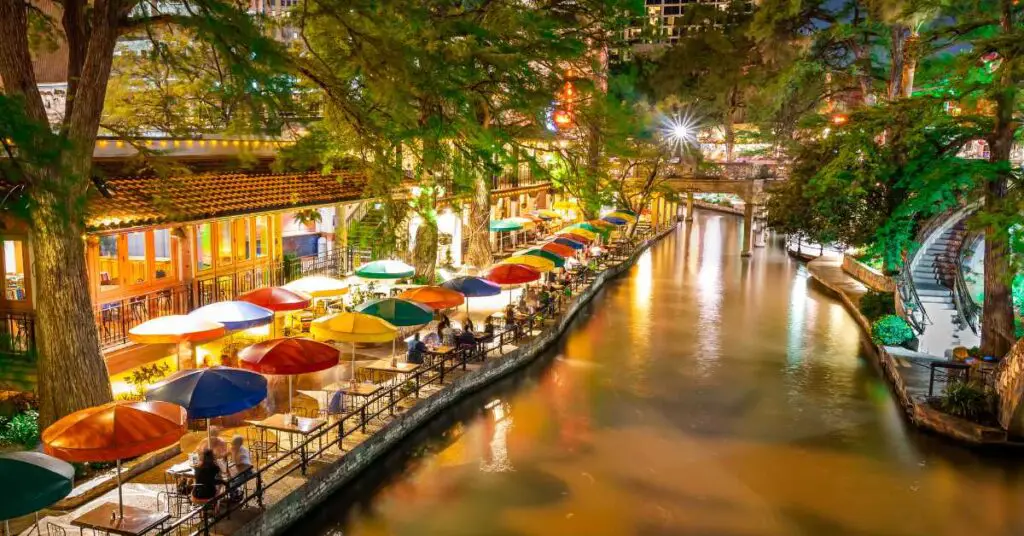Is it safe to travel alone? Yes, generally traveling alone is safe for the most part. Solo travel can be exciting and fun as long as you remember to do your research about the destination you are going to, practice common sense safety precautions, and remain vigilant to any potential risks. It is important to remember that while there are certain risks associated with traveling alone, it can be done safely as long as you take the necessary steps to protect yourself.
Traveling alone can be an incredibly rewarding experience, allowing individuals to explore new destinations on their own terms and at their own pace. However, for many, the prospect of solo travel can be daunting, raising concerns about safety and security.
While there are certainly risks associated with traveling alone, taking the appropriate precautions and understanding the basics of solo travel can help mitigate these risks and ensure a safe and enjoyable trip.
Understanding the Basics of Solo Travel Solo travel requires a different approach than traveling with a group or partner. It’s important to research destinations thoroughly, paying attention to factors such as crime rates, political instability, and natural disasters.
Additionally, solo travelers should be prepared to navigate unfamiliar territories and cultures, and should take steps to keep themselves safe, such as avoiding dangerous areas and staying alert in crowded spaces.
Assessing Safety in Different Destinations When planning a solo trip, it’s important to consider the safety of potential destinations. Some areas may be more dangerous than others, particularly for solo travelers.
Factors such as crime rates, political instability, and natural disasters can all impact the safety of a destination. Before traveling, individuals should research potential destinations and consult with travel experts to determine the level of risk associated with each location.
Key Takeaways
- Solo travel requires a different approach than traveling with a group or partner, and it’s important to research destinations thoroughly and take steps to keep oneself safe.
- When planning a solo trip, it’s important to assess the safety of potential destinations, considering factors such as crime rates, political instability, and natural disasters.
- Taking precautions and understanding the basics of solo travel can help mitigate risks and ensure a safe and enjoyable trip.

Understanding the Basics of Solo Travel
Why People Choose to Travel Alone
Solo travel has become increasingly popular in recent years, with more and more people choosing to embark on solo adventures. There are several reasons why people choose to travel alone. Some may want to step out of their comfort zone and challenge themselves, while others may want to explore a new place at their own pace without having to worry about the preferences of a travel companion.
Additionally, solo travel can be a great opportunity for self-discovery and personal growth. By traveling alone, individuals can learn more about themselves and their capabilities, and gain a sense of independence and empowerment.
Types of Solo Travelers
There are various types of solo travelers, each with their own preferences and priorities. Some solo travelers may prefer to stay in hostels and meet other travelers, while others may prefer to stay in hotels and have a more luxurious experience. Some may prefer to travel for adventure and outdoor activities, while others may prefer to explore cities and immerse themselves in the local culture.
Here are some common types of solo travelers:
- Backpackers: These travelers typically travel on a budget and stay in hostels or budget accommodations. They often prioritize meeting other travelers and exploring off-the-beaten-path destinations.
- Digital Nomads: These travelers work remotely and travel while working. They often prioritize having access to reliable Wi-Fi and may stay in accommodations that offer a workspace.
- Luxury Travelers: These travelers prioritize comfort and luxury and may stay in high-end hotels or resorts. They often prioritize relaxation and indulgence.
- Solo Female Travelers: These travelers may have unique concerns and considerations when traveling alone, such as safety and cultural norms. They often prioritize safety and may choose to stay in accommodations that cater to solo female travelers.
Overall, solo travel can be a rewarding and enriching experience for those who are willing to take the leap. By understanding the basics of solo travel and the different types of solo travelers, individuals can better prepare for their solo adventures and make the most of their experiences.
Assessing Safety in Different Destinations
When traveling alone, it’s important to assess the safety of the destination before embarking on the trip. This section will cover the factors to consider and how to research destinations to ensure a safe and enjoyable trip.
Factors to Consider
There are several factors to consider when assessing the safety of a destination. These include:
- Crime rates: Check the crime rates of the destination, including petty crime and violent crime. This information can usually be found online or through travel advisories.
- Political stability: Research the political situation of the destination to ensure that there are no ongoing conflicts or civil unrest that could pose a threat to travelers.
- Natural disasters: Check if the destination is prone to natural disasters such as earthquakes, hurricanes, or floods. Consider the time of year when planning the trip.
- Health risks: Research any health risks such as disease outbreaks or high pollution levels that could affect the traveler’s health.

Researching Destinations
Researching destinations as a solo traveler before booking a trip is of utmost importance. It allows individuals to make informed decisions and ensure a smooth and enjoyable journey. Thorough research helps solo travelers understand the culture, customs, and local practices of the destination they plan to visit.
By familiarizing themselves with the local language, transportation options, and accommodation choices, solo travelers can navigate unfamiliar territories with greater confidence. Additionally, researching destinations allows solo travelers to identify any potential safety concerns or travel advisories that may affect their trip.
Armed with knowledge about the local attractions, landmarks, and activities, solo travelers can plan their itinerary efficiently, ensuring that they make the most of their time and create memorable experiences.
Ultimately, researching destinations empowers solo travelers to embark on their adventures well-prepared, making their solo journeys not only rewarding but also safe and enjoyable.
Here are some tips for planning your perfect solo trip:
- Check travel advisories: Governments often issue travel advisories for destinations that are considered unsafe for travelers. These advisories provide up-to-date information on safety concerns.
- Read reviews: Read reviews from other travelers to get an idea of the safety of the destination. Look for reviews from solo travelers to get a better idea of what to expect.
- Look for safe areas: Research the destination to find safe areas to visit. Tourist areas and neighborhoods with a heavy police presence are often safer.
- Consider a guided tour: A guided tour can provide an extra layer of safety, as the guide will be familiar with the destination and can offer advice on staying safe.
Overall, assessing the safety of a destination is crucial when traveling alone. By considering the factors and researching the destination thoroughly, travelers can ensure a safe and enjoyable trip.
Preparation and Precautions for Solo Travel
Solo travel can be an enriching and empowering experience, but it also requires careful planning and preparation. Here are some essential travel documents and health and safety precautions to consider before embarking on a solo adventure.
Essential Travel Documents
Before setting off on a solo trip, it’s important to have all the necessary travel documents in order. This includes a valid passport, visas if required, and any other documentation needed for entry into the destination country. It’s also a good idea to make copies of these documents and store them in a secure location separate from the originals.
In addition to travel documents, it’s important to have a detailed itinerary, including flight and hotel reservations, as well as contact information for emergency services and the nearest embassy or consulate. It’s also a good idea to share this information with a trusted friend or family member.
Health and Safety Precautions
Safety should be a top priority when traveling alone. Here are some precautions to consider:
- Research the destination: Before traveling, research the destination thoroughly to learn about any potential safety risks, such as crime, natural disasters, or political instability.
- Stay connected: Keep in touch with friends and family back home, and consider purchasing a local SIM card or a portable Wi-Fi hotspot to stay connected while on the go.
- Secure accommodations: Choose accommodations that are located in safe areas and have good security measures in place, such as locked doors and windows, security cameras, and a front desk staffed 24/7.
- Stay aware: Be mindful of your surroundings and avoid walking alone at night or in unfamiliar areas. Keep valuables hidden and be wary of anyone who approaches you with unsolicited offers or requests.
- Get vaccinated: Depending on the destination, it may be necessary to get vaccinated or take other health precautions before traveling. Consult with a healthcare provider or travel clinic for advice.
By taking these precautions and being prepared, solo travelers can enjoy a safe and rewarding travel experience.
Handling Emergencies While Traveling Alone
Emergency Contacts
When traveling alone, it is important to have a list of emergency contacts readily available. This can include the contact information for family members, close friends, and the nearest embassy or consulate. It is also recommended to have the phone number for local emergency services, such as the police or ambulance, in case of an urgent situation.
It is important to keep this list of emergency contacts in a safe and accessible place, such as a notebook or on a digital device. It is also recommended to share this information with someone back home, so they can be contacted in case of an emergency.
Travel Insurance
Having travel insurance is crucial when traveling alone. It can provide coverage for medical emergencies, trip cancellations, and lost or stolen belongings. It is important to research and compare different travel insurance options to find the best coverage for individual needs.
When purchasing travel insurance, it is important to read the fine print and understand what is covered and what is not. Some insurance policies may have exclusions for certain activities or pre-existing medical conditions. It is also important to have a copy of the insurance policy and contact information for the insurance provider readily available while traveling.
In case of an emergency, it is important to contact the insurance provider as soon as possible. They can provide guidance on next steps and assist with any necessary arrangements. It is also important to keep all receipts and documentation related to the emergency, as they may be required for insurance claims.
Overall, handling emergencies while traveling alone requires preparation and planning. By having a list of emergency contacts and travel insurance, travelers can have peace of mind knowing they are prepared for unexpected situations.
Benefits and Challenges of Solo Travel
Personal Growth
Solo travel can be an incredibly rewarding experience for those who are up for the challenge. One of the biggest benefits of traveling alone is the opportunity for personal growth. When traveling alone, individuals are forced to step outside of their comfort zones and take on new challenges. This can lead to increased confidence, independence, and self-awareness.
Traveling alone also allows individuals to fully immerse themselves in their surroundings. Without the distractions of friends or family, solo travelers are more likely to interact with locals and fully experience the culture of their destination. This can lead to a deeper understanding and appreciation of different cultures and ways of life.
Potential Risks
While solo travel can be incredibly rewarding, it does come with its own set of challenges and potential risks. One of the biggest risks of traveling alone is personal safety. Solo travelers may be more vulnerable to theft, scams, and other crimes. It is important for solo travelers to take extra precautions to ensure their safety, such as staying in well-lit areas, avoiding dangerous neighborhoods, and keeping a close eye on their belongings.
Solo travel can also be lonely at times. Without the company of friends or family, solo travelers may feel isolated or homesick. It is important for solo travelers to take care of their mental health while on the road, whether that means staying in touch with loved ones back home or seeking out social activities while traveling.
Overall, solo travel can be a challenging but rewarding experience for those who are up for the adventure. By taking the necessary precautions and staying open to new experiences, solo travelers can reap the benefits of personal growth and cultural immersion while minimizing the potential risks.
Frequently Asked Questions
What are some safe solo travel destinations?
There are many safe destinations for solo travel. Some popular options include Japan, Iceland, New Zealand, Canada, and Switzerland. These countries are known for their low crime rates, welcoming locals, and well-developed tourism industries. It’s important to research the safety of any destination before traveling alone.
What are some safety tips for traveling alone in Europe?
When traveling alone in Europe, it’s important to be aware of your surroundings and take precautions to stay safe. Some tips include staying in well-lit areas, avoiding walking alone at night, keeping your valuables out of sight, and being cautious of scams. It’s also a good idea to let someone know your itinerary and check in with them regularly.
What are the psychological benefits of traveling alone?
Traveling alone can have many psychological benefits, including increased self-confidence, improved problem-solving skills, and a greater sense of independence. It can also provide opportunities for self-reflection and personal growth.
What age is appropriate for solo travel?
There is no set age for solo travel, as it depends on the individual’s maturity level and travel experience. Some young adults may be ready to travel alone in their late teens, while others may not feel comfortable until their 20s or 30s. It’s important to assess your own readiness and take necessary precautions.
Is it safe for women to travel alone?
While there are risks associated with any type of travel, it is generally safe for women to travel alone. It’s important to take precautions such as staying in well-lit areas, avoiding walking alone at night, and dressing modestly in conservative countries. It’s also a good idea to research the safety of your destination and consider joining a women-only tour group.
What are the dangers of traveling alone?
Traveling alone can come with risks such as theft, scams, and physical harm. It’s important to be aware of your surroundings, take precautions, and trust your instincts. However, with proper planning and precautions, solo travel can be a safe and rewarding experience.
Final Thoughts
In conclusion, traveling alone can be a rewarding and exciting experience for many people. However, it is important to take precautions and be aware of potential risks.
One way to ensure safety while traveling alone is to research the destination thoroughly before departure. This includes learning about the local customs, laws, and potential safety concerns. It is also important to stay aware of one’s surroundings and to avoid dangerous areas.
Another key aspect of safe solo travel is to stay in touch with family and friends. This can include checking in regularly and sharing one’s itinerary. Additionally, it may be helpful to carry a personal safety device, such as pepper spray or a loud whistle.
Ultimately, the decision to travel alone should be based on an individual’s personal preferences and comfort level. While there are risks associated with solo travel, taking proper precautions can help mitigate these risks and ensure a safe and enjoyable trip.



